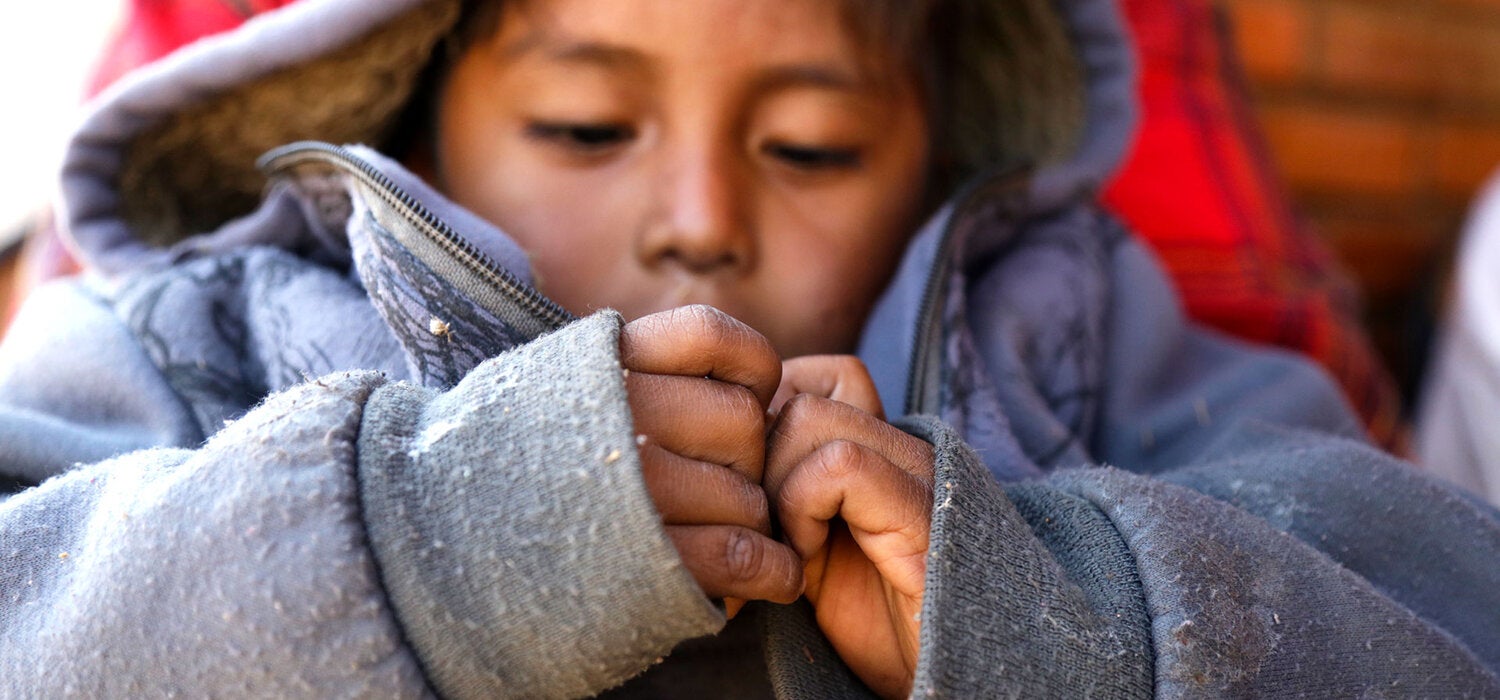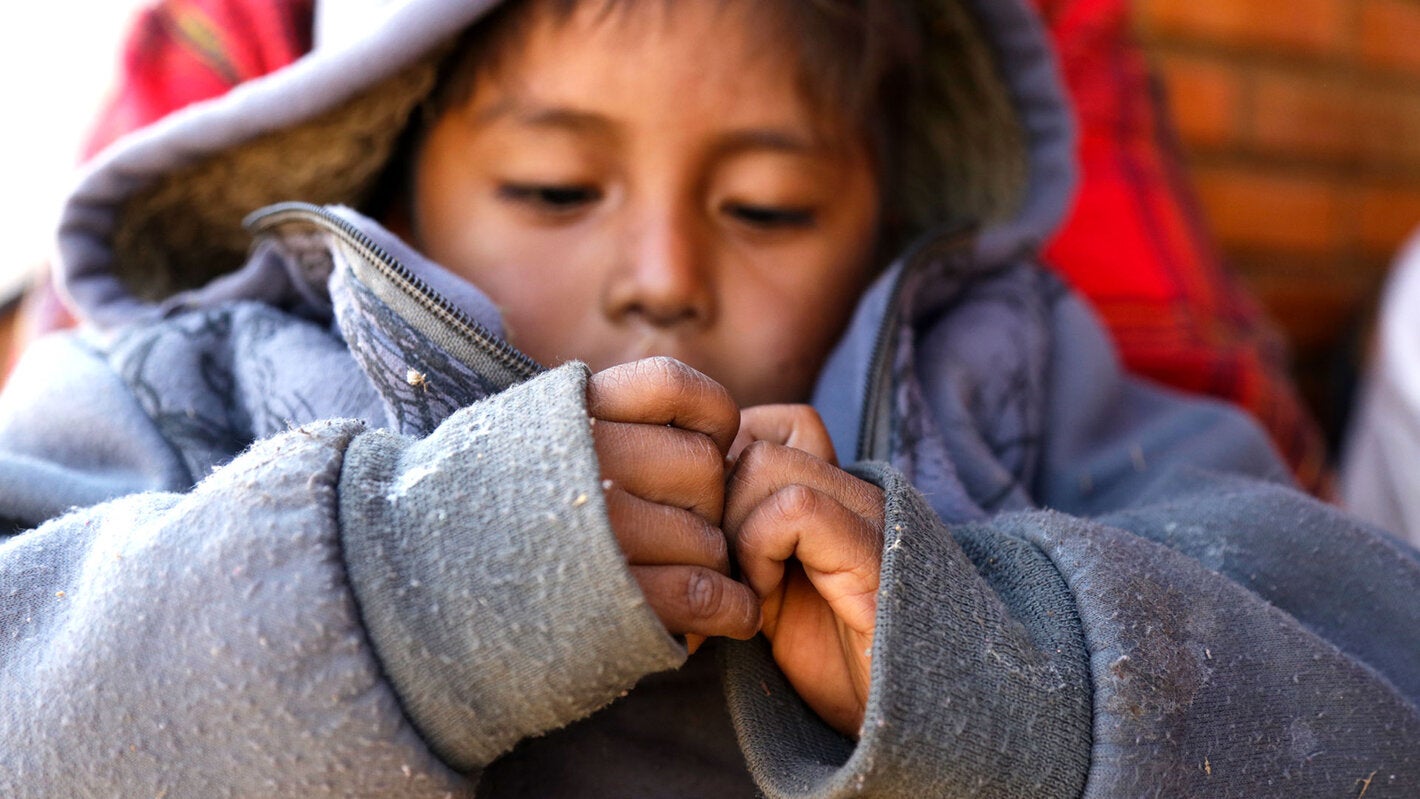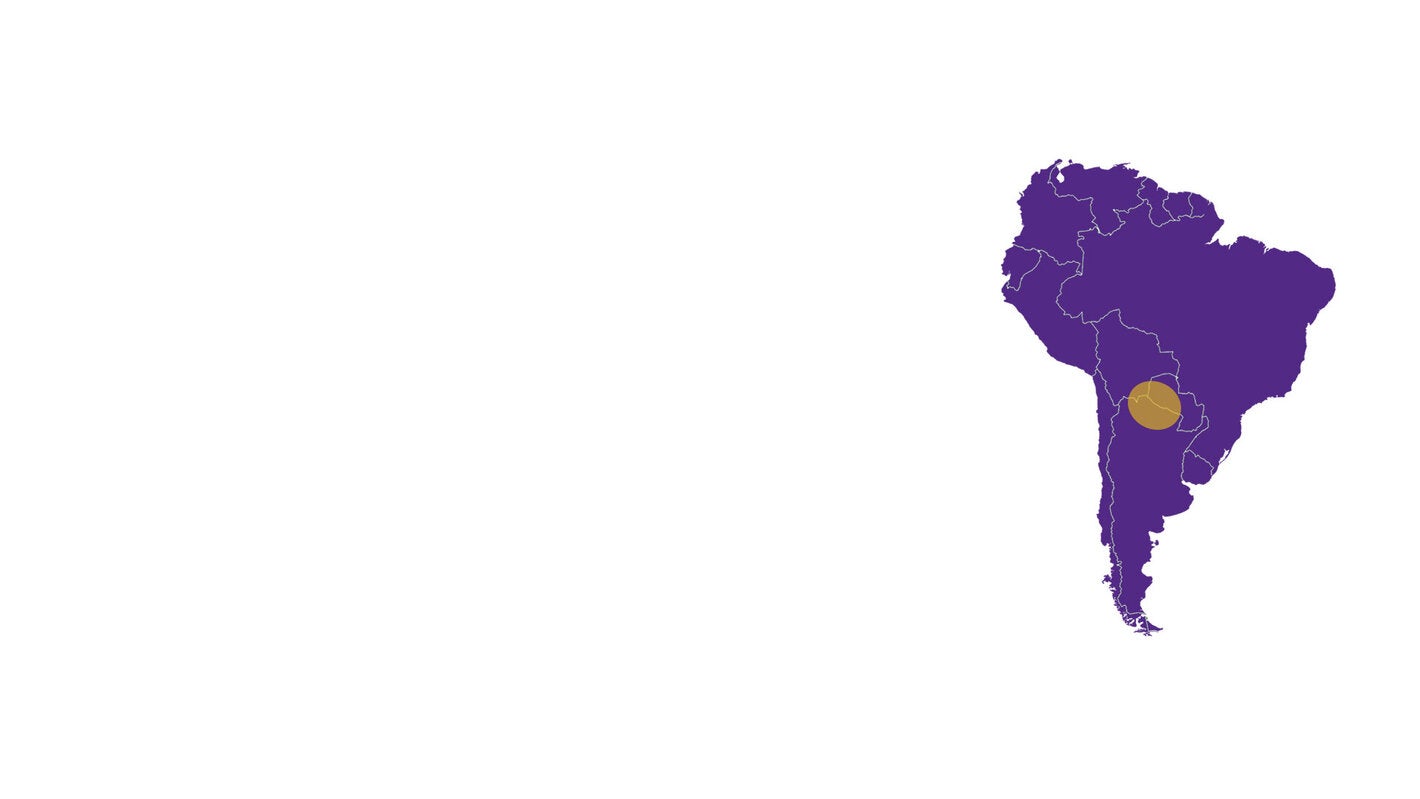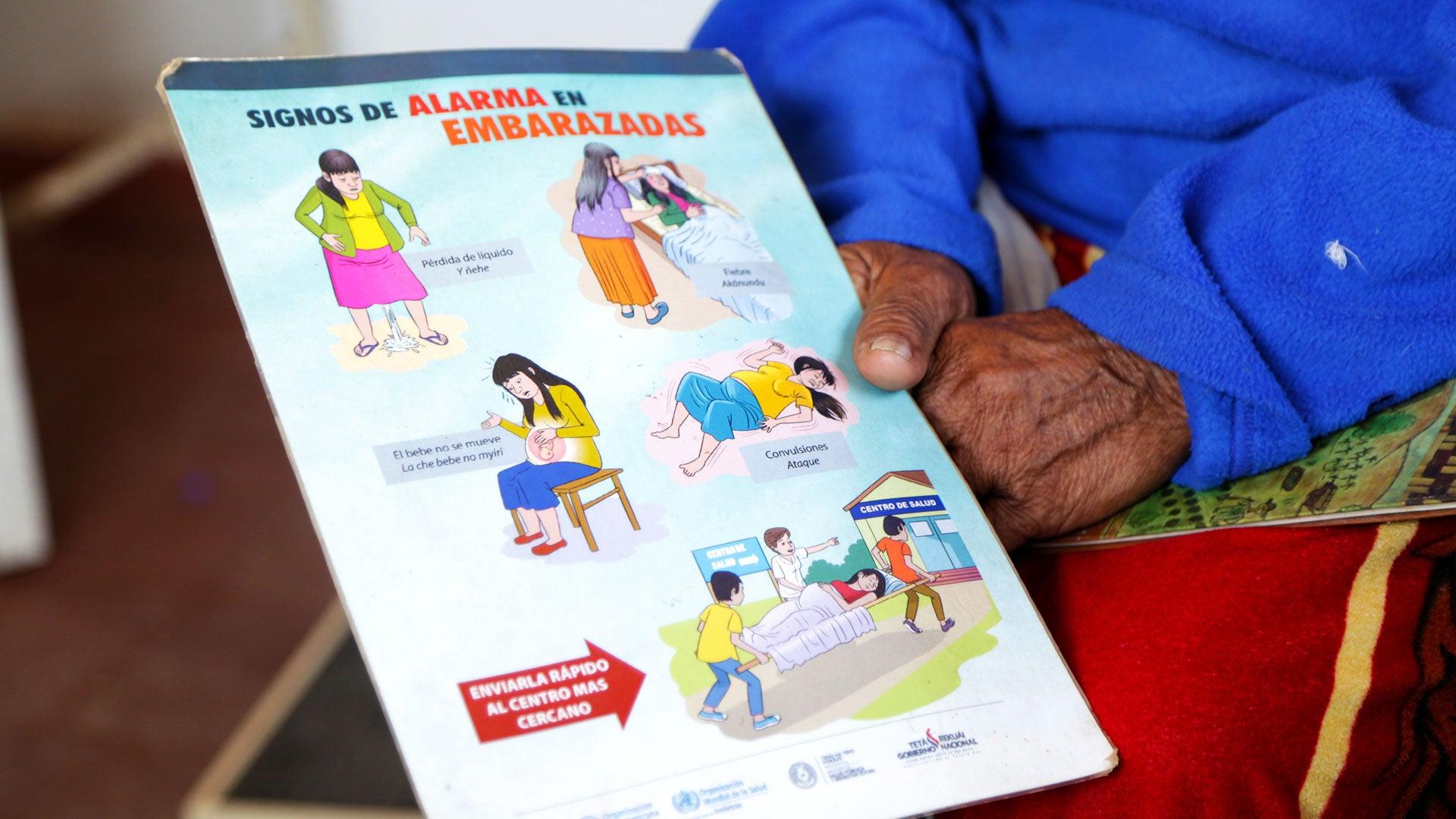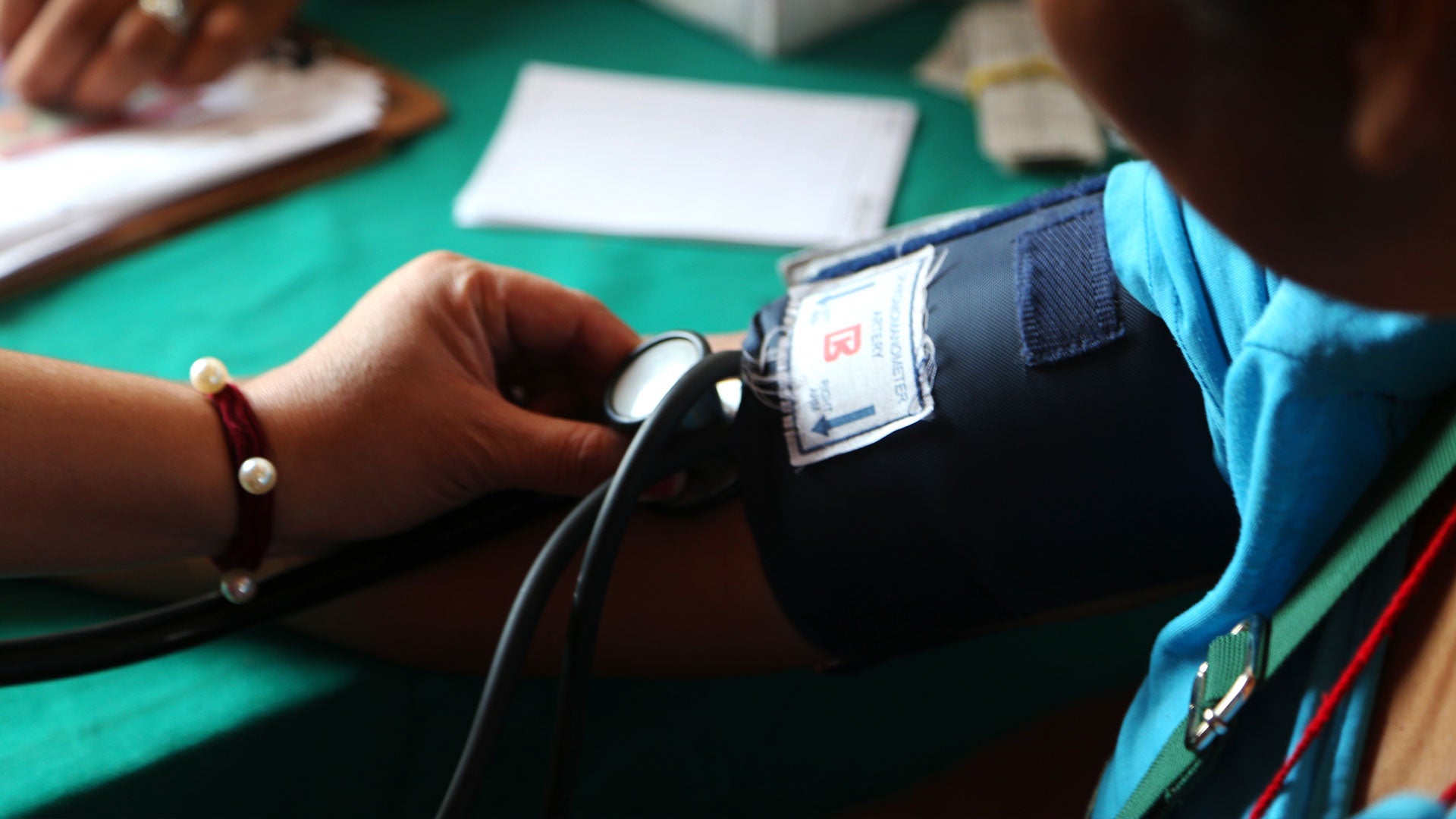Promoting culturally safe births in Argentina
“It was beautiful because at that time – during the birth – I didn’t feel helpless, I felt safe. Before, women felt alone and enclosed. It is completely different now,” said Cecilia Ailam, a patient at the San Roque Hospital in Embarcación, in the Argentine province of Salta.
Cecilia is one of the women that has benefited from a PAHO/WHO tool to promote culturally safe and respectful birth for indigenous communities. The tool is the first of its kind to be implemented in the area.
There are more than 3200 women of childbearing age from indigenous communities in the north of Argentina who can benefit from the initiative to promote culturally safe childbirth, which was carried out in a safe motherhood center in Salta. “This is the first time that the link between ancestral or traditional obstetric medicine and formal obstetric medicine has been strengthened,” said Marisa Alvarez, Undersecretary for Social Medicine in the Province of Salta.
“The initiative seeks to promote the empowerment of women, their autonomy, and their ability to make decisions about their bodies and how they want to give birth,” said Sandra del Pino.
It also seeks to ensure that health workers in the province are trained in aspects of intercultural health, that cultural and communication differences are overcome, that public spaces are adapted with cultural references and native languages, and that elements of indigenous practice are incorporated, particularly regarding the position in which a woman gives birth.
The initiative aims to help reduce inequalities in maternal and child health, promote the empowerment of women and their ability to decide, support models of childbirth care with an intercultural perspective, and actions that promote quality, warmth, timely care, and good treatment so that health services are better accepted by indigenous populations.
“I am happy to know that we can now have a family in the hospital, whereas before there were a lot of complications. We used to have a lot of issues around health care but now there are specialists and everything,” said Juana Ortega, a midwife from the Fwiñol indigenous community.
The initiative began in the San Roque hospital in Embarcación, which covers an area where 6212 women of childbearing age live, including 3207 women from indigenous communities, primarily the Wichí community.
Part of the initiative included dialogue between the various actors involved in this issue in the province. “The initiative has been important for consolidating information, for finding out how communities think and for improving communication difficulties – all of which were preventing women from accessing the care they need,” said Claudia Maturana, an obstetrician from the Embarcación hospital.
“Intercultural dialogue and encouraging exchange between people in health services and people in the communities is essential to ensuring that differences and needs are addressed,” concluded Sandra del Pino.
Tekove School – training indigenous health care Professionals from and for communities in Bolivia
Francisco Huatiari was chosen by the indigenous Chiquitano community from Mercedes in the municipality of Concepción in Santa Cruz, to attend the Tekove Katu School of Health to train as a nurse. Isidro Machina, of guaraní origin, and Israel Milton, from the Weenhayek community, are also attending the school to study environmental health.
What do these young Bolivian people have in common? All are from indigenous communities in the lowlands and highlands of Bolivia and have been selected by their communities to train at the Tekove Katu School of Health, which was created 39 years ago in the Bolivian Chaco, Santa Cruz.
Over the past three decades, health workers trained at the school have become the true promotors of health in dozens of rural communities in Bolivia.
The school of “full life”
Training at the school is carried out under a modular system, with face-to-face and practical learning. After a year, the indigenous youth then commit to return to their communities to work on issues including illness prevention, the provision of health care, the treatment and consumption of safe water, food management, adequate nutrition, the importance of healthy housing in preventing illness, territorial protection, energy, bilingual education and access to intercultural services.
The foundation of Tekove Katu, which in Guarani means a healthy life or full life, is based on the Declaration of Alma-Ata on Primary Health Care. This declaration also served as a catalyst for strengthening the Guarani community.
“In indigenous culture, health is not the absence of disease. If there is no water, there is no health. If there is no land, there is no health. If there is no access to basic systems and housing, there is no health,”
said Francisco Cosmi, the official responsible for the implementation of the agreement to operate the school by the church and the Bolivian State. This is part of the philosophy of health that exists among indigenous communities.
The Director of the School, Reverend Tarcisio Viavatti, has promoted the school for more than 40 years alongside a team of Italian and Bolivian volunteers. To date, the school has trained more than 1000 young health promoters.
Learning by doing
Thanks to support from the Pan American Health Organization/World Health Organization (PAHO/WHO), the school began a specialized training program to improve issues such as access to water and sanitation, and waste management and hygiene within health centers and communities in the Bolivian Chaco.
Under the “Health without borders in the Bolivian Chaco” agreement, PAHO/WHO provided 20,000 for the school to develop a capacity-building project and an initiative to improve access to water, among other things. The Project has three components: Training, research and the provision infrastructure and supplies for under-resourced communities in the Chaco region.
Indigenous midwives and health Professionals strengthen ties to ensure safe deliveries in Paraguay
Dr. Yeison Fariña smiles and jokes with the indigenous midwives. He has managed to build relationships of trust and empathy with them in order to save lives and bring babies into the world while minimizing risk to the mother and child. “Midwives are mostly illiterate. This is why we’ve made educational cards with illustrations that allow them to recognize the warning signs and refer them to a health center,” he said.
These actions are part of the Community Red Code, a methodology that aims to efficiently and effectively respond to obstetric emergencies. This initiative addresses the main causes of maternal mortality: severe bleeding or hypertension in pregnancy. Community involvement is a key part of this initiative so that it can detect and act in cases of risk to pregnant women or newborns.
Fariña is a young doctor who works in the Family Health unit, La Leona, in La Patria Community in the Paraguayan Chaco, 500 km from Asunción, where indigenous midwives were trained to identify warning signs in pregnant women and refer them to the health center.
The midwives were invited to participate in “Mutual Enrichment” meetings, an intercultural methodology that seeks to establish a bridge between health services and the ancestral knowledge of the midwives.
Parts of the Chaco territory are located far from urban centers, making it very difficult to transfer a patient in the case of an emergency. Ensuring community integration in health care is therefore vital in Paraguay.
The PAHO/WHO technical cooperation has contributed to the reduction in maternal mortality by strengthening capacities for managing obstetric emergencies in the health service network through the application of the Red Code. In 2017, there were 78 maternal deaths reported and in 2018, this figure was 74 (with a reduction of 5% per year).
Towards universal health in the South American Chaco
The Towards Universal Health for the Population of the Great South American Chaco initiative aimed to reduce mortality rates of mothers, newborns, and children under the age of 5. The Project focused on strengthening culturally appropriate health services for indigenous and rural populations, promoting access to safe water and nutrition, and ensuring an emergency response to droughts and floods, among other disasters. Thanks to this Project, PAHO, with technical cooperation from Brazil, has helped make universal health a reality for the population of the South American Chaco, leaving no one behind.

